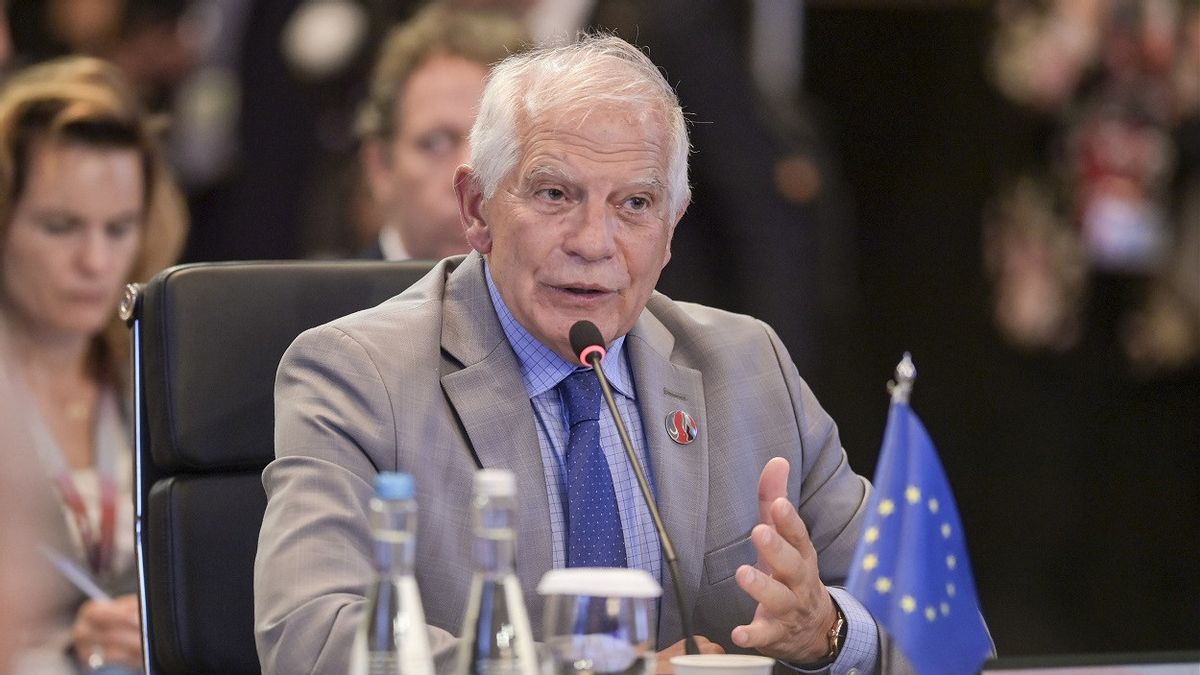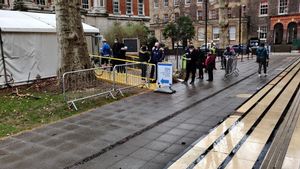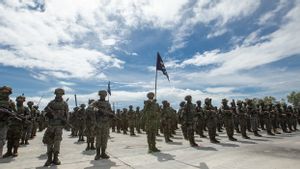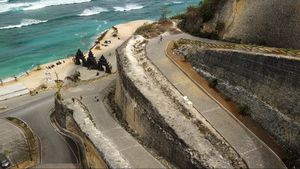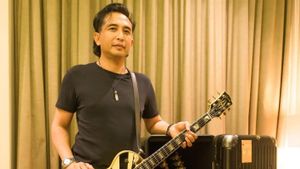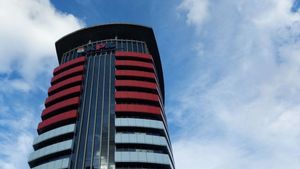JAKARTA - The European Union rejects the forced seizure of power in Gabon and calls for all parties to exercise restraint, said the bloc's Head of Foreign Policy, Josep Borrell, but also alluded to election fraud in a statement Thursday.
"The challenges faced by Gabon must be resolved in accordance with the principles of the rule of law, constitutional order and democracy," Borrell said.
"The peace and prosperity of this country, as well as regional stability, depend on it," he continued.
He added that the European Union had "serious concerns" about how the presidential election that preceded the coup was organized and implemented.
"There is a military coup and an institutional coup, where you don't have to take up arms, but if I trick the election to seize power, it's also an unnatural way to do it," he explained.
As previously reported, a number of senior military officers appearing on the television channel Gabon 24, said the election results were canceled, all borders were closed until further notice and state institutions were dissolved.
The soldiers introduced themselves as members of the Institution Transition and Recovery Committee. The state institutions they declared were disbanded, including the government, senate, national assembly, constitutional courts and electoral institutions.
Senior military officer Gabon announced that he had placed President Ali Bongo Ondimba under house arrest, as they seized power after the incumbent won a third term, appointing interim leaders from among them during the transition period.
They also said they had arrested the president's son, Noureddin Bongo Valentin and a number of other people for corruption and treason.
Within hours, the generals met to discuss who would lead the transition and unanimously agree to appoint General Brice Oligai Nguema, the former head of Gabon's presidential security force (Paspampres), according to another televised address.
SEE ALSO:
Tensions escalated in Gabon amid fears of unrest following Saturday's presidential, parliamentary and legislative elections, which saw Bongo seek to extend the rule of his family which has lasted for 56 years.
Meanwhile, the opposition Gabon is pushing for changes in countries rich in oil and cocoa but poor and often hit by the disaster.
The lack of international monitoring, suspension of several overseas broadcasts, and the government's decision to cut internet services and impose national curfews after the election, have raised concerns about the transparency of the electoral process.
The English, Chinese, Japanese, Arabic, and French versions are automatically generated by the AI. So there may still be inaccuracies in translating, please always see Indonesian as our main language. (system supported by DigitalSiber.id)
